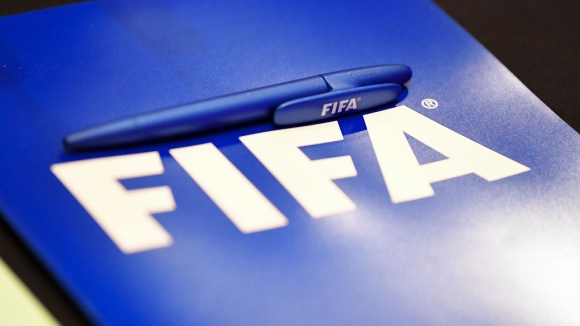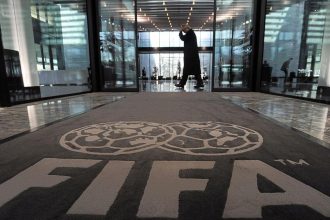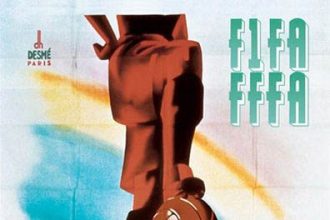1. Object
This Code describes infringements of the rules in FIFA regulations, determines the sanctions incurred, and regulates the organization and function of the FIFA judicial bodies responsible for taking decisions and the procedures to be followed before said bodies.
2. Scope of application: substantive law
1. This Code applies to every match and competition organized by FIFA and to matches and competitions in association football that do not fall under the jurisdiction of the confederations and/or the associations unless otherwise stipulated in this Code.
2. This Code also applies to any breach of FIFA’s statutory objectives as well as of any FIFA rule that does not fall under the jurisdiction of any other FIFA body.
3. Scope of personal application
The following are subject to this Code:
a) associations;
b) members of associations, in particular the clubs;
c) officials;
d) players;
e) match officials;
f) football agents licensed by FIFA;
g) match agents licensed by FIFA;
h) single-entity leagues;
i) anyone elected or assigned by FIFA to exercise a function, in particular with regard to a match, competition, or other event organized by FIFA.
4. Scope of temporal application
1. This Code applies to all disciplinary offenses committed following the date on which it comes into force.
2. This Code also applies to all disciplinary offenses committed prior to the date on which it comes into force, subject to any milder sanction that would apply under previous rules.
3. Disciplinary proceedings instigated against someone who was under FIFA’s jurisdiction as per Article 3 on the day the alleged disciplinary offense was committed shall not be abandoned by the FIFA judicial bodies solely because the person involved is no longer under FIFA’s jurisdiction.
5. Applicable law
The FIFA judicial bodies base their decisions:
a) primarily, on the FIFA Statutes as well as FIFA’s regulations, circulars, directives and decisions, and the Laws of the Game; and
b) subsidiarily, on Swiss law and any other law that the competent judicial body deems applicable.
6. Disciplinary measures
1. The following disciplinary measures may be imposed on natural and legal persons:
a) warning;
b) reprimand;
c) fine or any other pecuniary measure;
d) return of awards;
e) withdrawal of a title;
f) order to fulfill a financial obligation arising or existing in the context of a trial.
2. The following disciplinary measures may be imposed on natural persons only:
a) suspension for a specific number of matches or for a specific period;
b) ban from dressing rooms and/or team bench;
c) ban on taking part in any football-related activity;
d) community football service;
e) suspension or withdrawal of a football agent license;
f) suspension or withdrawal of a match agent license.
3. The following disciplinary measures may be imposed on legal persons only:
a) ban on registering new players;
b) playing a match without spectators;
c) playing a match with a limited number of spectators;
d) playing a match on neutral territory;
e) ban on playing in a particular stadium;
f) annulment of the result of a match;
g) deduction of points;
h) relegation to a lower division;
i) expulsion from a competition in progress or from future competitions;
j) forfeit;
k) replaying a match;
l) implementation of a prevention plan;
m) forfeiture of training rewards that are due;
n) payment of restitution to an affiliated club;
o) payment of a specific amount to a club or a member association.
4. Fines shall not be less than CHF 100 or more than CHF 1,000,000.
5. Associations are jointly liable for fines imposed on representative team players and officials. The same applies to clubs in respect of their players and officials.
6. The disciplinary measures provided for in this Code may be combined.
7. Directives
1. Directives require those affected by them to behave in a certain manner.
2. In addition to disciplinary measures, the FIFA judicial bodies may issue directives stipulating the manner in which a disciplinary measure must be carried out, including the date and conditions on which the disciplinary measure is enforced.
3. The FIFA judicial bodies may also award compensation for damage where an association or club is liable for that damage on the basis of Article 8 or 17.
8. Responsibility
1. Unless otherwise specified in this Code, infringements are punishable regardless of whether they have been committed deliberately or negligently. In particular, associations and clubs may be responsible for the behavior of their members, players, officials or supporters, or any other person carrying out a function on their behalf even if the association or club concerned can prove the absence of any fault or negligence.
2. Acts amounting to attempt are also punishable.
3. Anyone who takes part in committing an infringement or induces someone to do so, whether as an instigator or accomplice, may also be sanctioned.
9. Decisions of the referee
1. Decisions taken by the referee on the field of play are final and may not be reviewed by the FIFA judicial bodies.
2. In cases where a decision by the referee involves an obvious error (such as mistaking the identity of the person penalized), the FIFA judicial bodies may only review the disciplinary consequences of that decision. In cases of mistaken identity, disciplinary proceedings may, in accordance with this Code, be opened only against the person who was actually at fault.
3. A protest against a caution or a sending-off from the field of play after two cautions is admissible only if the referee’s error was to mistake the identity of the player.
4. In cases of serious misconduct, disciplinary action may be taken even if the referee and their assistants did not see the event in question and were therefore unable to take any action.
5. The provisions of this Code relating to protests against match results affected by a referee’s decision that was an obvious violation of a rule remain applicable.
10. Limitation period for prosecution
1. Infringements may no longer be prosecuted in accordance with the following periods:
a) two years for infringements committed during a match;
b) ten years for anti-doping rule violations (as defined in the FIFA Anti-Doping Regulations), infringements relating to international transfers involving minors, and match manipulation;
c) five years for all other offenses.
2. The limitation period runs as follows:
a) from the day on which the perpetrator committed the infringement;
b) if the infringement is recurrent, from the day on which the most recent infringement was committed;
c) if the infringement lasted for a certain period, from the day on which it ended;
d) from the day on which the decision of the Dispute Resolution Chamber, the FIFA Players’ Status Committee, or the Court of Arbitration for Sport (CAS) becomes final and binding.
3. The limitation periods set out above are interrupted by all procedural acts, starting afresh with each interruption.
11. Duty to report
1. Anyone subject to this Code shall immediately report to the secretariat of the Disciplinary Committee any violation of, or attempt to violate, this Code by any third party.
2. Anyone subject to this Code who makes an unfounded or irresponsible accusation may be sanctioned.
12. Duty to collaborate
1. The parties shall act in good faith throughout the proceedings.
2. The parties or the persons subject to this Code shall collaborate to establish the facts and, in particular, comply with requests for information from a FIFA body, committee, subsidiary, or instance, as well as from the FIFA administration.
3. In particular, persons subject to this Code shall help to establish and/or clarify the facts of a case or any possible breaches of this Code and, in particular, shall provide any evidence requested.
4. Any breach of this article by any person subject to this Code may lead to the appropriate sanctions being imposed by the relevant judicial body.
5. If the parties fail to collaborate, especially if they ignore the stipulated time limits, the judicial body may nonetheless reach a decision on the case using the file in its possession.
By: FIFA Disciplinary Code 2023






I will immediately take hold of your rss feed as I can’t in finding your email
subscription link or e-newsletter service. Do you
have any? Please allow me realize in order that I may just subscribe.
Thanks.